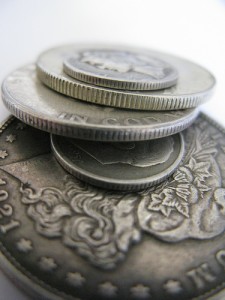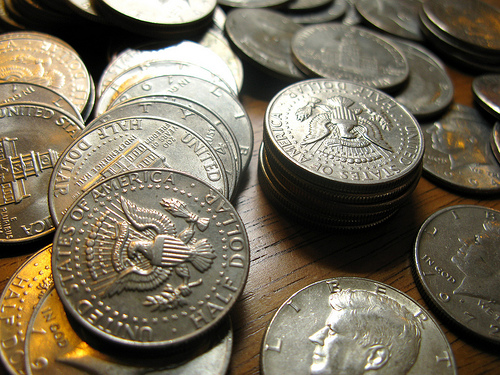If someone walked up to you right now and asked you about your credit score, would you have an answer?
Considering around 60 percent of Americans don’t know their credit score, it’s likely that you wouldn’t be able to answer this question.
However, considering your credit score can cost or save you thousands of dollars, learning more about this magic number is important. Below you’ll find broken-down basics– the what, why and how – of credit scores so you can know you number and how to make it benefit you.
What is a Credit Score?
Your credit score is essentially a number that represents your worthiness of credit. Do you pay bills on time? Are you in debt? Are you a spender?
The FICO scale (or Fair Isaac Corporation scale) ranges your credit score from a low 300 to a high 850. After pulling credit information from different lending networks, FICO compiles a report on you that reflects your creditworthiness, or credit score.
Why Does My Credit Score Vary?
Because FICO uses three different credit bureaus to calculate your score – Equifax, Experian, and TransUnion – you actually have three different FICO scores that can vary by as many as 50 points.
Your score can also vary depending on your spending habits, monthly income, debt management and many more factors. FICO has developed credit score ranges to gauge your creditworthiness:
- 300-579: You have bad credit. It will be difficult to obtain a credit card, be approved for loans and more.
- 580-629: Your have poor credit. Though you might qualify for a credit card, its limits will and its rewards will be nil.
- 630-689: You have fair credit. Examine your debt and try to extinguish any “bad” debt you have.
- 690-749: You have good credit. You will qualify for most credit cards with low interest rates and you’ll receive good benefits.
- 750-850: You have excellent credit. You get the lowest interest rates, highest credit limits and biggest rewards.
How Is My Credit Score Calculated?
FICO has developed a formula to help credit networks calculate your creditworthiness depending on the following:
- Payment history
- Amount of time credit lines have been open
- If you’re late on any accounts
Because this number can fluctuate, understanding how your credit score is determined is easier when broken down by percentages. The formula is basically comprise of:
- 35% – payment history
- 30% – how much you owe and your debt utilization ratio
- 15% – how long your accounts have been open
- 10% – new credit accounts
- 10% – type of credit used
Even when explained in basic terms, fully understanding your credit score can be difficult. Don’t hesitate to contact the credit professionals at Lexington Law for more credit information, including advice on how to repair poor credit. Check out their Tips and Tricks page for contact info and friendly financial advice.
photo credit: when fifty cent was a coin via photopin (license)


Recent Comments